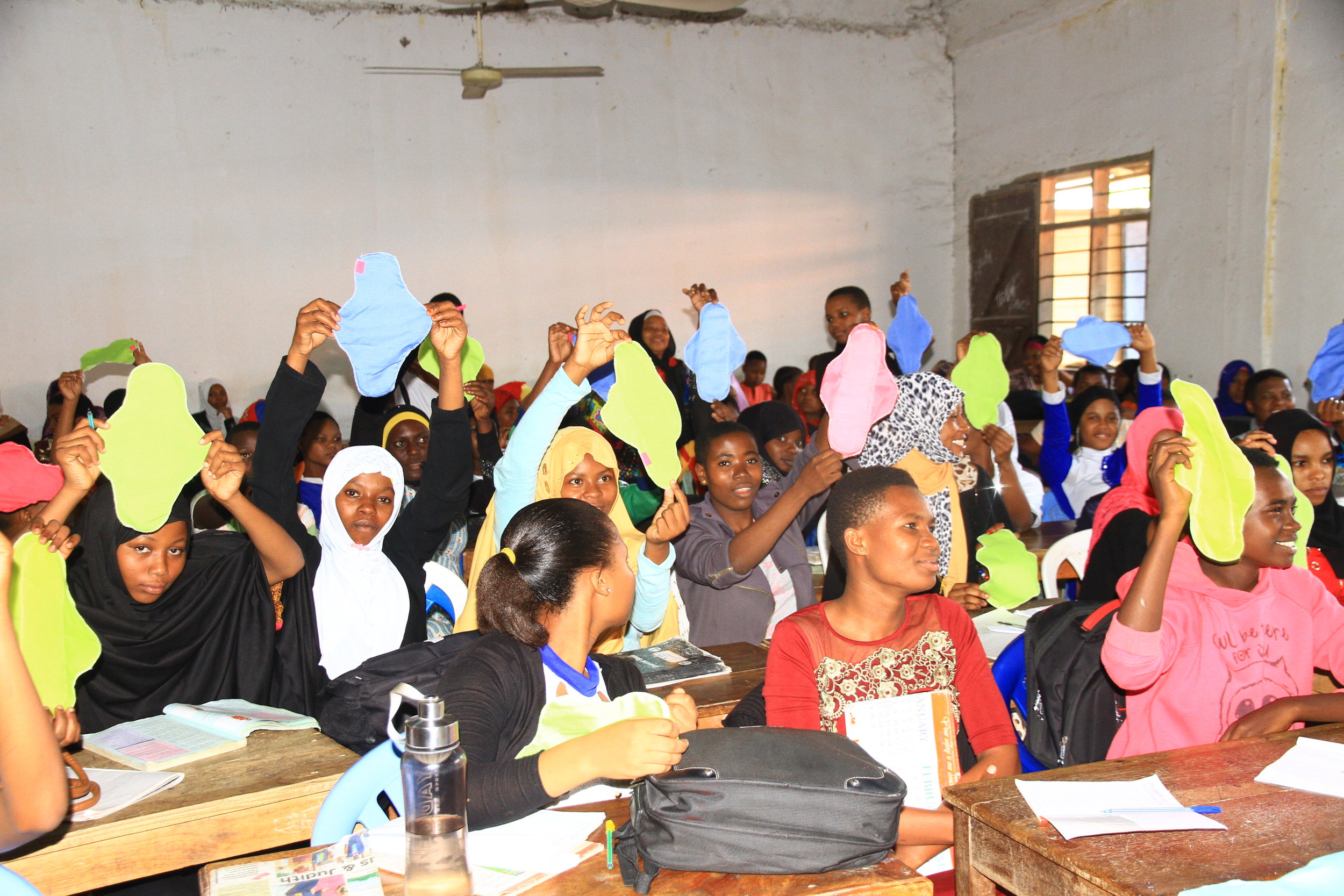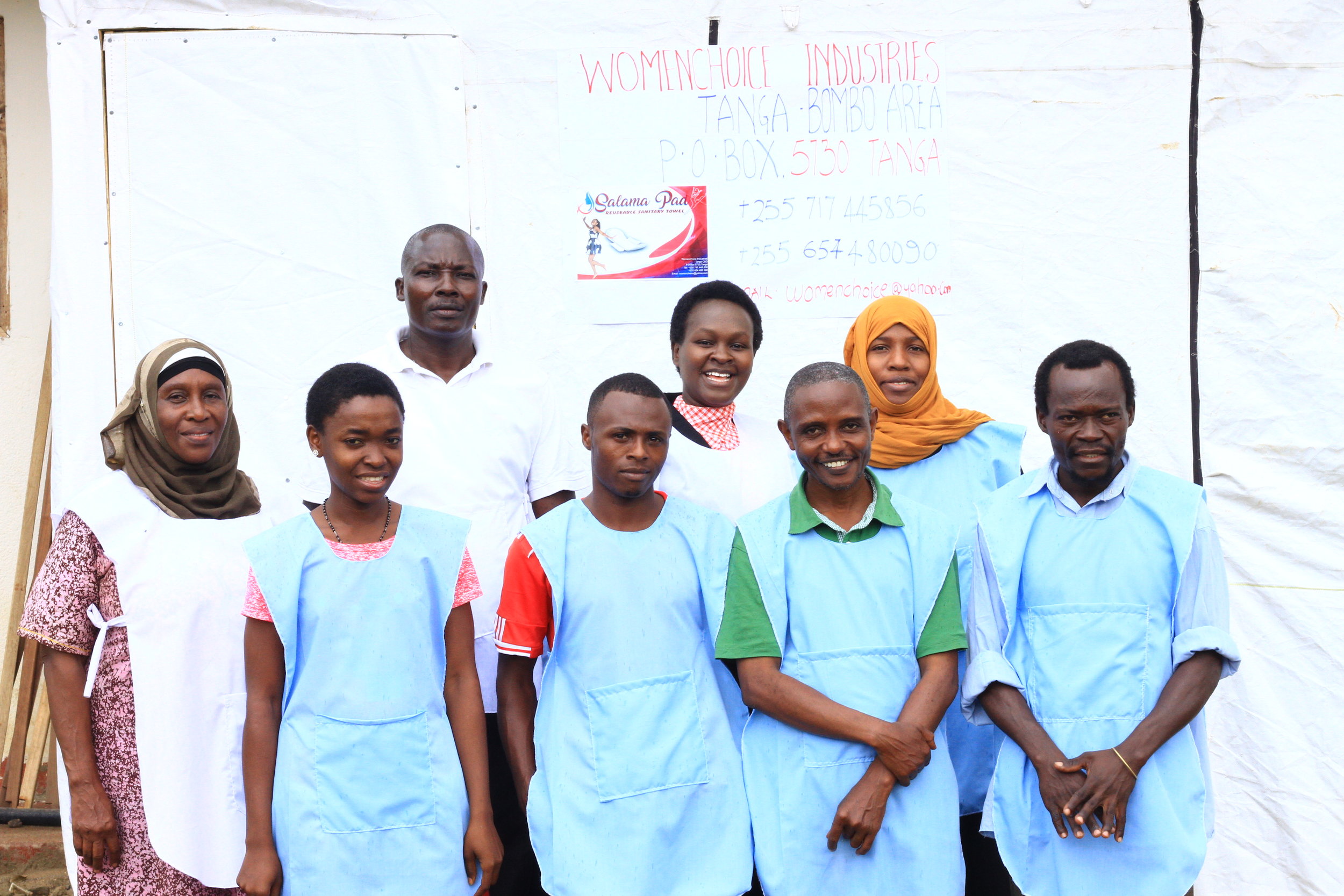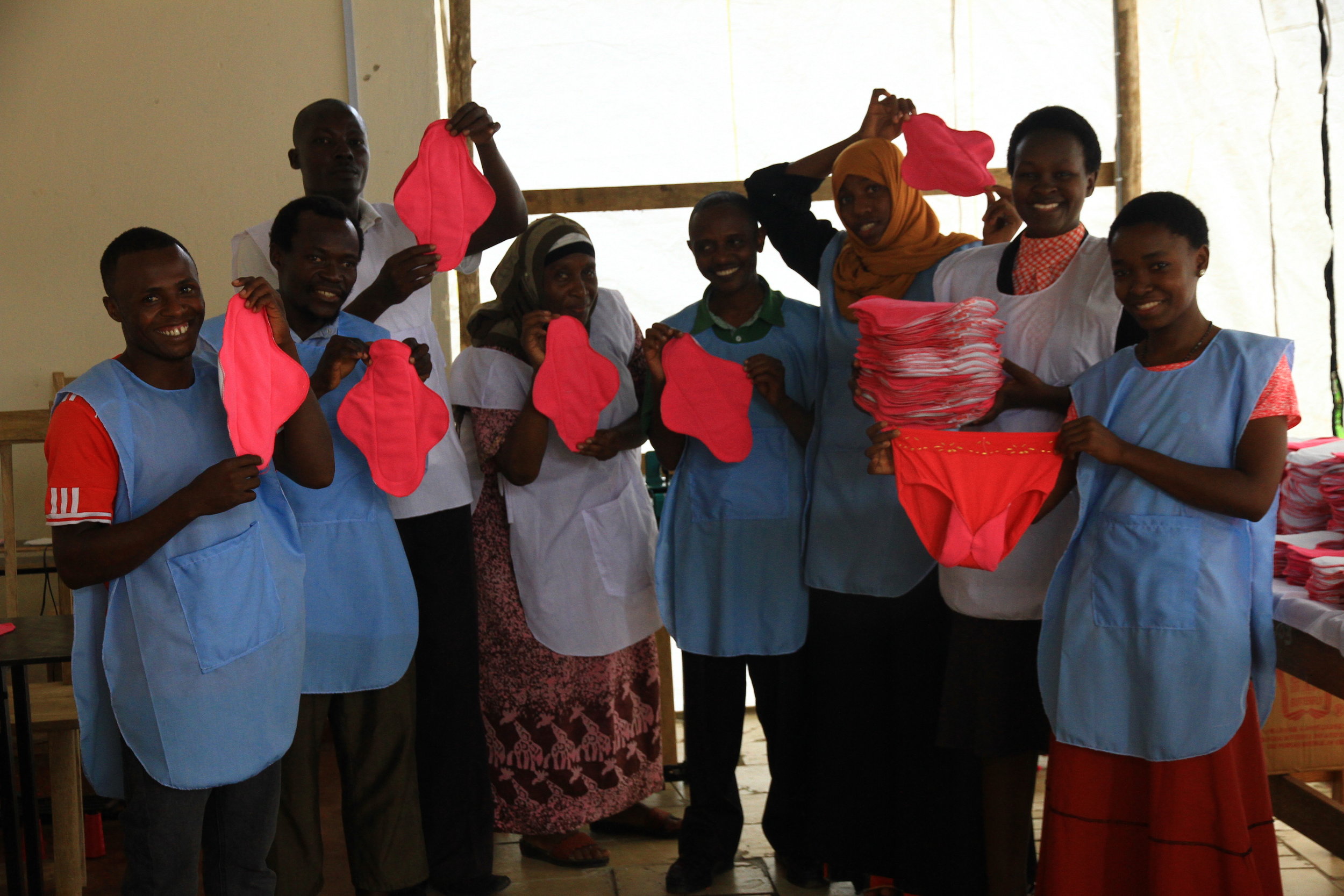Reusable Sanitary Pads Project
Location: Muheza, Tanzania
Project Background
School girls aged 10-19 years from low income families in Muheza, Tanzania, face a myriad of Menstrual Hygiene Management (MHM) challenges, including: lack of information, products and services, the use of unhygienic materials such as cow dung, dry sand, leaves, sisal fibers, pieces of mattress and blankets to manage their menses. They trade sex for pads with men, twice their age, exposing them to early pregnancies, abortions, HIV/AIDS and sexually transmitted infections. Schools lack adequate sanitary and disposal facilities and a water supply forcing girls to abstain from school for at least 4-7 days a month amounting to 48-84 days annually. This directly impacts their school attendance and academic performance. Disposable sanitary towels remain costly, inaccessible and environmentally unsustainable.
In Tanzania: only 11% school-based sanitary facilities, latrines, meet the minimum standard; 26% of schools with 100 pupils have no latrines; 9% latrines are clean; 1% of schools have soaps; 38% have no access to water; 46% do not have a functional water supply; 52% of the latrines have no doors; 63% have no sanitary disposals facilities; 82% lack sufficient knowledge to manage menstruation; and, girls menstrual related school dropout accounts for 45% annually. (UNICEF)
Womenchoice Industries’ MHM innovation model, the reusable “Salama Pads”, has been designed to provide a long-term solution to these issues. Made from locally available second-hand clothing materials, the “Salama Pad” can be used for a maximum of 3 years.
Due to a lack of effective business ownership knowledge by the women and girls in the local community there exists a gap in the market. Widows and teenage mothers, who would have been critical players in the business model ownership and distribution management processes, lack effective engagement, skills and experiences in small scale business management and financial book and record keeping skills.
From research conducted by Womenchoice, the product distribution model depends on the effective engagement of women from their localities as business owners, partners, volunteers, agents and vendors, with the necessary knowledge, skills and competencies on small scale business, financial book and record keeping. The basis for this business distribution model would be to incentivize 200 teenage mothers to learn how to run small scale businesses in order to generate more income and distribute resources equally.
Goal
Improved menstrual hygiene management health condition for school girls aged 10-19 years, in Muheza district council, Tanzania
Specific Objectives
Train 200 teenage mothers on production and selling of “Salama Pads” through introduction of small-scale business models, basic book and record keeping, management skills with projected outcome of 75% of these women engaging in income generation activities in Muheza, Tanzania by April 2019.
Increased distribution and access of 30,000 In school girls to MHM information, products and services by December 2020.
Improve girls MHM related school attendance and academic performance from 45%- 75% in Tanga, Tanzania by December 2020.
The Innovation
The reusable sanitary pad is unique and innovative, in that it is made from locally available second hand clothing materials, which are readily available in the local market. It comprises of three different kinds of materials with distinct layers: the bottom layer, polyurethane laminate (PUL) waterproof materials; the soft cotton flannel; and the absorbent cotton fleece material. The flannel and fleece clothing materials are then cut in 8 cm width by 16-18 cm length in a menstrual sanitary towel like structure, with a wing on both sides, sewn together using a tailoring machine.
The polyurethane waterproof material, is then cut into the same size and sewn, using an overlock machine, the wings are then press-buttoned, packaged and distributed. The “Salama Pad’’ is soft, user- and environmentally-friendly, non-itchy, affordable and reduces the cost of menstrual pads by an average of between 75% to 90% annually. It employs a much more hygienic approach through hand washing with locally available soap and then sun-dried.









